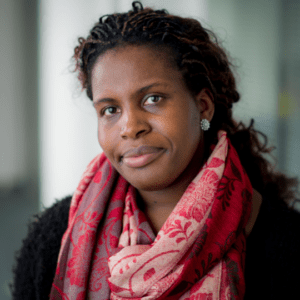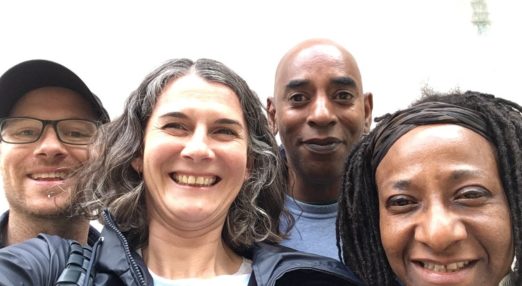We are not accepting new applications at this time. We expect to begin accepting new applications from community organisations in summer 2024 and from South London and Maudsley Foundation Trust and Kings College London in autumn 2024.
About the programme
We have committed £10m in funding over the next five years to help people live well with psychosis. The Living Well with Psychosis theme will fund initiatives and research to improve the treatment and support the recovery of people affected by psychotic disorders; support families and carers; and help to address inequalities in the experiences of racialised communities in relation to mental health services.
Criteria
As well as the basic eligibility requirements, we assess proposals using the following criteria:
Delivery: Proposals must have a clear plan and detailed budget demonstrating what the need is and how activity responds to the need. They should have a strong, appropriately experienced team.
Inclusion: Projects must have a suitable approach to involving those who have lived experience and/or carers in their design and delivery. The approach should be appropriate and proportionate to the project delivery and aims.
Impact: Proposals must provide evidence and knowledge of the issues they are seeking to address and potential to improve outcomes for people who have experienced psychosis.
Learning: Proposals should demonstrate the teams involved are learning-led and with a strong approach to monitoring, evaluation and sharing learning.

Priority areas
- People affected by psychosis having a greater voice and influence over their own care
- Increased access to and engagement with high quality personalised and effective therapy and medication
- Increased access to and engagement with high-quality, culturally appropriate peer and family support, information, and advice
- The impact of racism and discrimination on access to appropriate care at the right time is addressed
- Innovation leading to increased access to and engagement with help to avoid or reduce problematic cannabis usee
- People affected by psychosis have a better experience of crisis
- Better use of data to understand risk and target care
- Improved opportunities for employment and volunteering
Learn more about the projects we have funded under this programme.
 Lead: Matthew Richardson, Consultant Clinical Psychologist, South London and Maudsley
Lead: Matthew Richardson, Consultant Clinical Psychologist, South London and Maudsley
Total funding awarded: £83,700
In the UK, the highest reported rates of psychotic disorders are among Black ethnic groups. In the boroughs served by South London and Maudsley NHS Foundation Trust, while Black men with psychosis are over-represented on psychiatric inpatient wards, they are under-represented in accessing psychological therapy sessions in community mental health services.
This project seeks to collaborate with these service users to understand why and how the service could change its approach to better meet their needs and provide more preventative support. The project is part of broader programme to develop an anti-racist community psychosis pathway, and it will use reflective spaces for therapists to confront how discrimination impacts service users.
 Lead: Marta Di Forti, Clinical Reader in Psychosis Studies at King’s College London
Lead: Marta Di Forti, Clinical Reader in Psychosis Studies at King’s College London
Total funding awarded: £99,116
There is a well-known link between heavy use of high-potency cannabis – or ‘skunk’ – and psychosis. Young adults with cannabis-induced psychosis are more likely to be males in their early 20s from minoritized communities, whose first contact with Mental Health services is through a compulsory admission.
We’ve funded previous phases of the Cannabis Clinic, which helps cannabis users with psychosis to reduce their use of the drug. Having proven the effectiveness of the programme, this phase of the project aims to widen access to the clinic’s online weekly peer sessions.
They bring together people with lived experience to learn from their peers in recovery. Inpatients with psychosis who use cannabis across all South London and Maudsley wards will be encouraged to participate. An online carers’ group will be established to help them support their loved one to reduce their reliance on cannabis and help their overall health and recovery.
 Lead: Alan Simpson, Professor of Mental Health Nursing at King’s College London
Lead: Alan Simpson, Professor of Mental Health Nursing at King’s College London
Total funding awarded: £197,558
For some people the nature of their psychotic illness means that they cycle through periods of being well and periods of being very ill. This often leads to repeated admissions to acute mental health wards which specifically deal with people experiencing a severe, short-term mental health crisis.
This project will test whether specific ward-based activities could be developed and delivered at Bethlem, Maudsley and Lewisham hospitals to better prepare and motivate service users for life out of hospital and in recovery. A programme of meaningful activities could help people with severe mental illness to stay occupied, develop life skills, healthy behaviours and community connections.
There will be a particular emphasis on the needs of Black service users, who face additional discrimination and exclusion in their daily lives, and on the involvement of families and carers to help prepare for discharge.
Leads: Craig Morgan, Professor of Social Epidemiology, King’s College London and Dr Celestin Okoroji, Head of Research, Black Thrive
Total funding awarded: £270,331
This project will look at whether delivery of social and community interventions, alongside routine care, can break the cycle of entrenched disadvantage that worsens outcomes for people with psychosis. Service users often believe that the social aspects of their lives such as housing quality and poverty are at the root of their problems, but mental health services are not set up to help address these issues. This can lead to frustration and disengagement.
The project will test the effectiveness of providing a package of tailored support to provide important life skills to those who need them, to help people find work or housing, make and handle a budget, engage with education, strengthen family relationships and integrate into the community.
Lead: Dr Juliana Onwumere , Consultant Clinical Psychologist & Senior Lecturer – King’s College London
, Consultant Clinical Psychologist & Senior Lecturer – King’s College London
Total funding awarded: £106,753
This project will widen access to the innovative course ‘Caring for people with psychosis and schizophrenia’ developed by King’s College London and delivered via the Open University. As the world’s first Massive Open Online Course (MOOC) for these carers, MOOCs provide open access to online sessions that allow for an unlimited number of participants.
Funding will allow the course to increase frequency from once a year to three times a year and a targeted engagement campaign will allow it to reach people who are less visible in carer support services, such as young carers and carers from minoritised communities.
 Lead: Dr Juliana Onwumere, Consultant Clinical Psychologist & Senior Lecturer – King’s College London
Lead: Dr Juliana Onwumere, Consultant Clinical Psychologist & Senior Lecturer – King’s College London
Total funding awarded: £89,117
The project aims to understand the needs of Black carers, who face additional obstacles to accessing support including experiences of racism and a deep mistrust of the mental health system. It will bring together Black carers to discuss their caregiving needs, understand what kinds of education about mental health and wellbeing they need, and hear what support would benefit them. The project will also gather perceptions from staff in inpatient and community mental health settings about the obstacles to engaging with and supporting Black carers. The ultimate aim is to improve the outcomes of Black people with psychosis, by supporting and empowering their carers.



